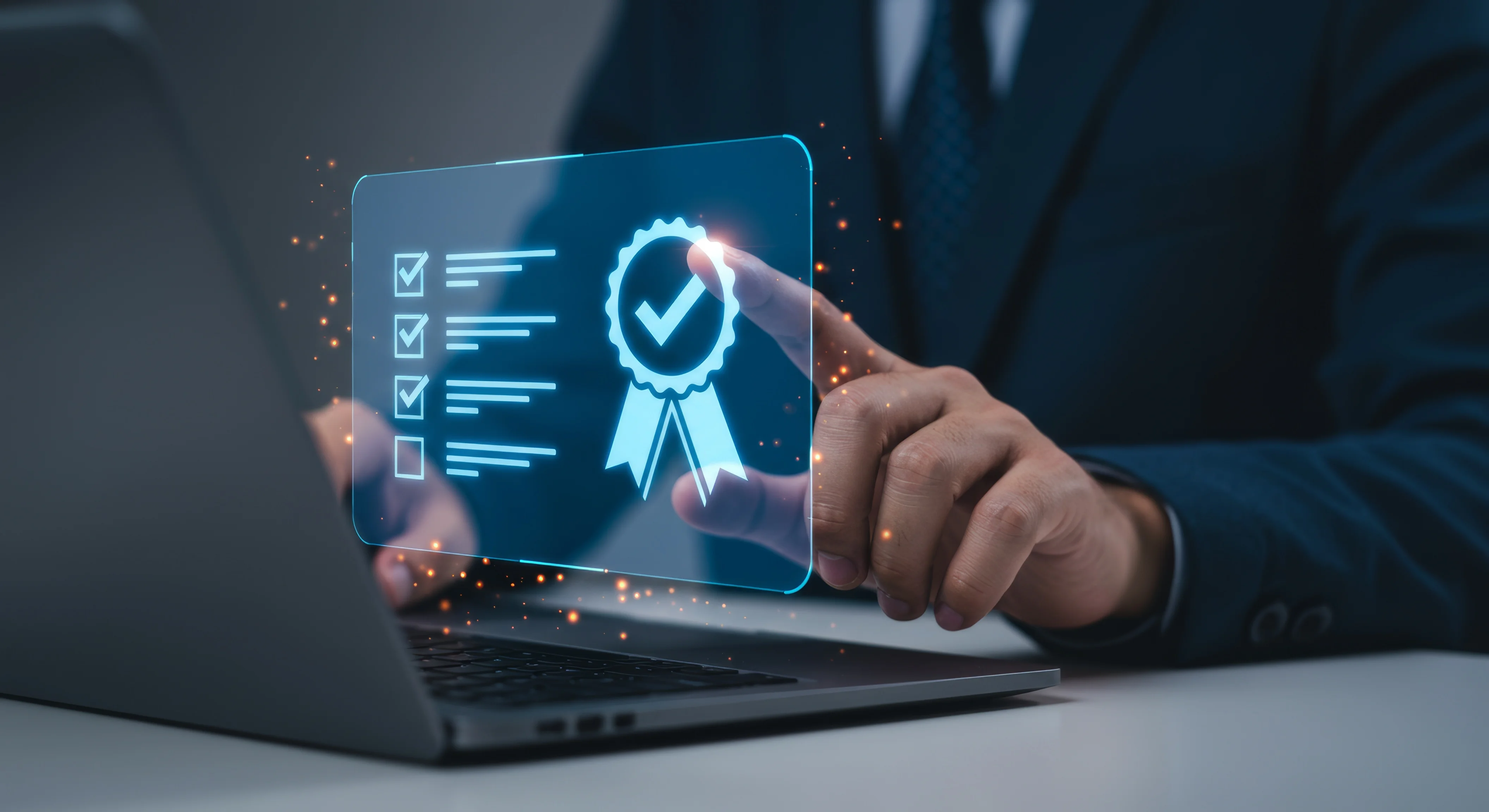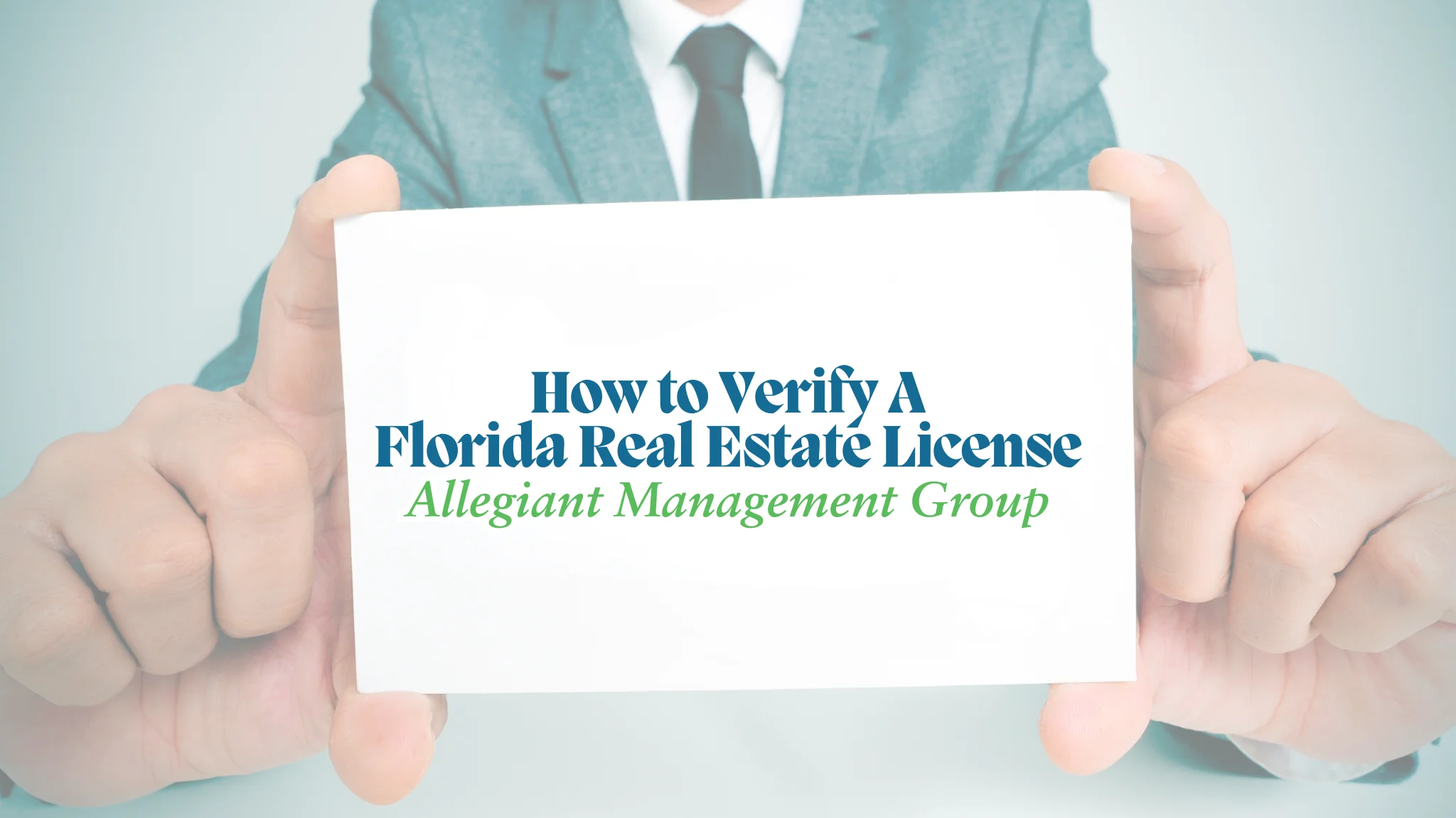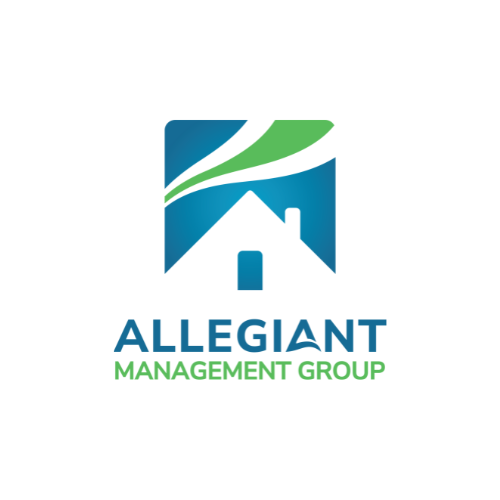Last Updated: July 19, 2025
Table of Contents
Understanding the Importance of License Verification
Real estate transactions involve significant financial commitments. Ensuring an agent’s credentials are valid is essential for security. License verification is a simple step that can prevent costly mistakes.
The DBPR provides tools for checking the status of real estate licenses in Florida. These resources are designed to be accessible and easy to use. By using these tools, you can verify any potential agent’s credibility quickly.
Here are a few reasons why verifying a license matters:
- Protects against fraud and malpractice.
- Confirms the agent’s legal standing.
- Helps maintain the integrity of real estate transactions.
Regularly checking an agent's status is prudent. It confirms their license is current and without any disciplinary actions.

Why Verify a Florida Real Estate License?
Checking a Florida real estate license ensures the agent is legally authorized. This action protects consumers and enhances trust. Here’s why it's crucial:
- It ensures compliance with state regulations.
- It builds confidence in your real estate choices.
- It helps avoid potential legal issues.
A verified license signifies the agent is bound by professional standards. This assurance is vital in every real estate transaction.
Consequences of Working with Unlicensed Agents
Hiring an unlicensed agent can lead to severe issues. You may face legal problems if the transaction fails. Unlicensed agents lack the oversight needed to ensure professional conduct.
Without a valid license, there’s no accountability. This means consumers may not have legal recourse if problems arise. Hence, ensuring an agent’s license is current is not just advisable; it is essential.
How to Perform a Florida Real Estate License Lookup
Verifying a real estate license in Florida is simple. The process ensures you work with licensed professionals. The primary tool for this task is the My Florida License portal.
First, visit the Florida Department of Business and Professional Regulation's (DBPR) website. This platform has a user-friendly interface. It allows you to search by various criteria such as name or license number.
To use the portal effectively, follow these steps:
- Go to the official DBPR website.
- Navigate to the license search section.
- Enter the search criteria.
- Review the search results carefully.
Accessing My Florida License Portal
Accessing the My Florida License portal is straightforward. Begin by visiting the official DBPR website. Once there, look for the "License Search" option on the homepage.
After clicking the option, you can start your search. This online service is available around the clock. It’s convenient and offers peace of mind while ensuring you work with licensed agents.
Entering Search Criteria for Effective Results
Ensuring precise search results requires accurate input. Here’s how to maximize search effectiveness:
- Use correct spelling of names.
- Input either a full name or license number.
- Consider adding a city for better filtration.
Understanding Search Results and License Status
Interpreting search results properly is essential. Once you receive results, review them thoroughly.
Key information typically includes:
- License status (active or inactive).
- Expiration date of the license.
- Any disciplinary actions listed.

Additional Resources for Verification
When verifying a Florida real estate license, several resources can assist you. Beyond the DBPR portal, these resources enhance your verification process. They provide additional layers of security and assurance.
Cross-Referencing with Other Licenses
Cross-referencing with other licenses adds an extra verification step. The DBPR tool supports searches across professions. This method is helpful for identifying dual-license holders.
- Use the same search criteria on the DBPR.
- Look up diverse licenses like nursing or contracting.
- Confirm personal details across different professions.
Utilizing Local Real Estate Boards
Local real estate boards offer valuable insights. They can provide additional data about the agents. These boards often have background details not found in basic searches.
Importance of Professional Organizations in Licensing
Professional organizations play a crucial role in licensing. They oversee members' adherence to standards. Such organizations often maintain comprehensive membership lists.
Keeping Updated Records
Regularly updating your records with current license information is essential. This practice avoids potential legal and financial complications.
Encouraging Transparency in Real Estate Transactions
License verification fosters honesty in real estate. It builds trust, ensuring all parties are reliable and qualified.
Final Thoughts on License Verification
Verifying a Florida real estate license is crucial for secure transactions. It ensures you're working with legitimate professionals. By using available tools, you gain peace of mind.
Frequently Asked Questions (FAQs)
- Use the DBPR’s My Florida License portal to search by name, license number, or city.
- No, working with an unlicensed agent can lead to legal and financial consequences.
- It shows the license status, expiration date, and any disciplinary actions on record.
- Yes, the DBPR site allows verification for multiple professions, including nurses and contractors.
- Before engaging in any transaction and periodically during long-term partnerships.
How do I check if a real estate license is valid in Florida?
Is it legal to work with an unlicensed real estate agent in Florida?
What information does the DBPR license search provide?
Can I verify licenses for other professions in the same portal?
How often should I verify a real estate agent’s license?
Disclaimer: This content is for informational purposes only and does not constitute legal or professional advice. Please consult the Florida Department of Business and Professional Regulation or a licensed attorney for specific guidance.



